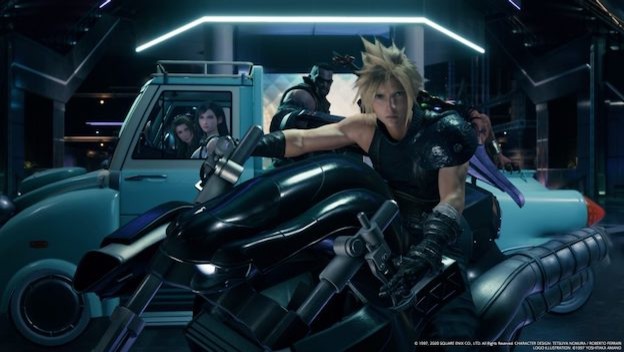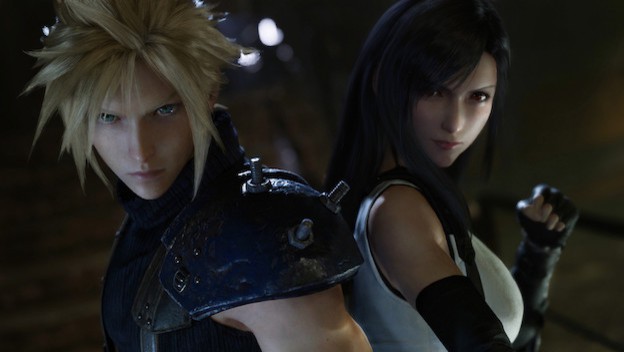want to start this off by saying that I am not about to trash Final Fantasy VII Remake . I am also not about to glorify it. Also, trust me when I say that I am not going to spoil anything (except maybe the smallest, general details). I, personally enjoyed the game. I know some people didn’t. But the biggest rift over the game, a huge part of the discourse, is the divisive ending. Let’s explore that.
First off, the ending might not appeal to “purists.” I think it was pretty obvious that Square Enix wasn’t going to stick purely to the script right from the get go, and the quote from Biggs specifically about “purists,” was a fun little way of communicating that. Then, as the game goes on, there are more and more hints that things will be a little different. There’s a subtly to it, though. There’s also a surreal element. It’s nice.
Then the ending hits you like a hammer. Subtly flies out the window. We could go on and on about how this is perhaps a step back from the writing point of view, but it is probably not a big enough deal to be a major detractor. It also sends a pretty strong message to the purists.
Up until the ending, the creators had straddled a pretty careful line. They were able to maintain the spirit of the original, adhere to a lot of its plot points, and depict a world in trouble and the ways in which it affects the characters. There’s a sense of hopelessness that matched the feeling of the original. The game takes the characters, better defines their relationships, and digs deep into what makes them and Midgar special. I doubt that very many people took issue with this but that’s just speculation.
Now, back to the subtlety. The game is conveying a message to the players while this anomaly, this place where it differs from the original, does little more than vex the characters. The character’s don’t see the anomalies the way the player does. This creates a sense of dramatic irony and another level to the intrigue.
Warning, this next part is the biggest spoiler I’m going to put in. I don’t personally think it’s specific enough but if you want to go into the game with zero knowledge or feel like you might be able to extrapolate too much from mentions of themes and motifs, pull out now.

Then, in the game’s biggest moments, the characters find out. Enemies and heroes communicate. Destiny, time, and other heavy concepts become a motif. The dramatic irony is gone and another issue is placed in front of the characters that is, perhaps, larger in scope than anything faced in the original. We can’t know at this point if it’s supplemental to the main plot or if it will overshadow the game.
Square Enix, of course, has the right to make any game they want. They’ve proven that they can pretty reliably remake Final Fantasy VII in a way that captures the spirit of the original. The conversation, now, is do we trust them to continue that? Analyzing the game in its entirety, it is easy to make an argument in the game’s favor. The ending, though? It’s hard to make an argument at all because what it is that the storytellers are doing is proposing a concept to us. They are hinting at a direction. Nothing major is changed retroactively, not really, and we can’t be sure about the quality of the path in front of us. Purists will be mad, for sure, because they wanted more of the original. I think a lot of the rest of us, though, are upset about the lack of certainty. The game promises something different, and there are a lot of ways that can go. Until the end, it was going in a great direction. But now we are left with the question, “do we trust the developers to execute on this idea?” If we don’t, then we don’t like the ending. If we do, then we might be excited for what’s next. The truth is, we don’t really know what’s in store. But a quick glance at some other “big concept” Square Enix games isn’t the worse reason to be uneasy. Kingdom Hearts fans know what I’m talking about.
